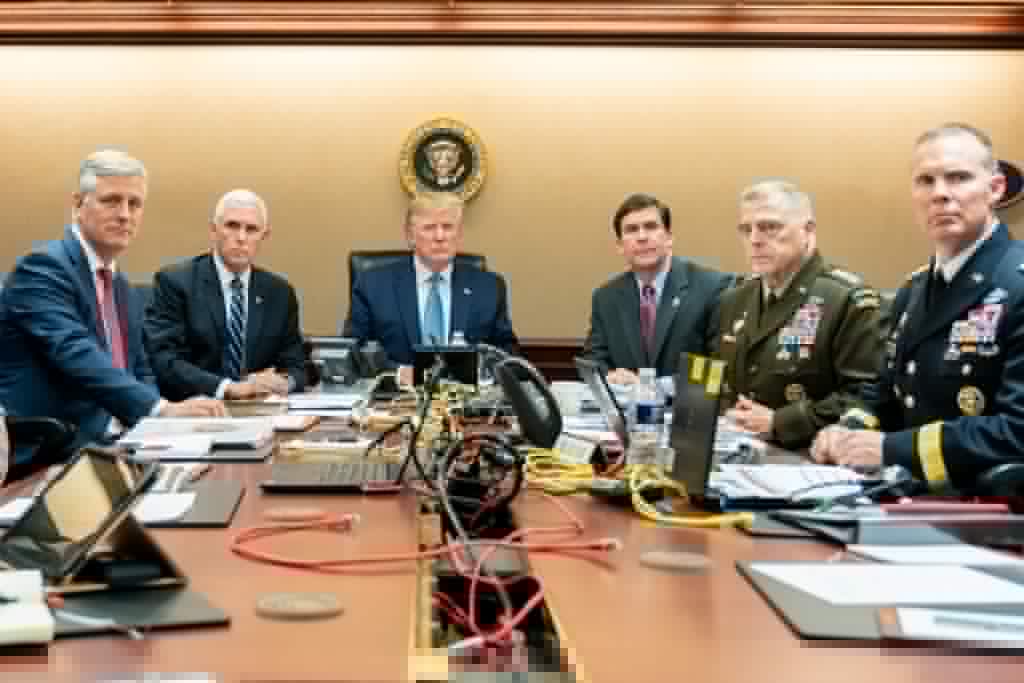On Saturday Oct. 26, Abu Bakr al-Baghdadi died during a raid on his compound in northwestern Syria. For half a decade, al-Baghdadi has led ISIS and its war of terror across the world, conquering large swaths of Iraq and Syria and with affiliates primarily across Africa. It lost the last of its territorial holdings last march.
The U.S. has been hunting al-Baghdadi for half a decade as he moved across Iraq and Syria. Earlier this past summer, one of al-Baghdadi’s wives was arrested and interrogated and gave up information that led to the eventual discovery, according to American officials. The death of al-Baghdadi caused uncertainty over who will succeed him, as his most likely successor, al-Muhajir, died during a drone strike and many of the other high ranking members have been either arrested or killed.
The raid that killed al-Baghdadi was carried out by Delta Force commandos, which are Army Special Forces. Delta Force was able to enter the compound by blowing a hole through the wall around the compound. This method was chosen as they decided that it would be too risky to attempt to enter through the main entrance. They were immediately under heavy fire from members of ISIS; al-Baghdadi was chased down a dead end tunnel with three of his children and when he reached the end of the tunnel, he detonated a suicide vest, killing himself and the kids. No soldiers or Army dogs were killed in the operation.
On Thursday Oct. 1, ISIS announced the death of al-Baghdadi, as well as that of his successor. The new leader of ISIS is Abu Ibrahim al-Hashimi al-Qurashi, but we do not know who that person is. The name given is not the person’s actual name but is meant to represent the location of origin and clan affiliation, which is a common practice for ISIS to refer to its leaders. The most important part of the name is al-Qurashi because that would mean that the new leader is a direct descendant of the Muslim Prophet Muhammed, which has been a prerequisite to be a caliph. That is important since ISIS claims to be a caliphate.
The death of al-Baghdadi has been likened to the death of Osama bin Laden, “while it had faded a bit in memory by the time President Barack Obama was up for re-election the following year, it was a talking point for his campaign,” David Sanger said, a reporter with the New York Times who has been on three separate teams that have won Pulitzer prizes.
President Trump is still moving troops from Northern Syria with the exception of having troops remain at the oil fields. Representative Wallz, a Republican from Florida, who previously served as a Green Beret, believes, “We must keep in mind that we were able to strike Baghdadi because we had forces in the region.” The U.S. had less time to prepare for this mission than they would usually have. If the U.S. had waited until after it had pulled its troops out of Northern Syria, there would not be enough troops in the region to be able to successfully complete the mission. This mission has also increased the calls from both parties to remain in the region; Adam Schiff said that this raid does not make up for leaving Kurds.
As Senator Lindsey Graham said, “The war is by no means over, but the caliphate is dead, and the leader of the caliphate is dead.” The war will continue, and the U.S. has moved troops back into Northern Syria.
Sources: CNS, CNN, NY Times

